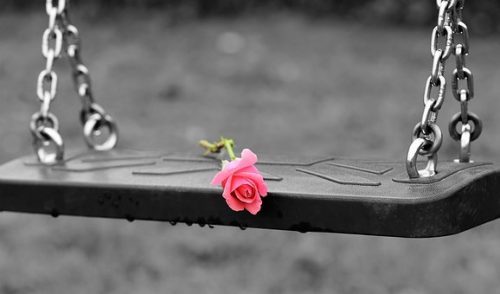Helping Children Who Are Abused And Neglected – Part 2
 Source: pixabay.com
Source: pixabay.com
What You Should Look For
An emotionally abused child tends to be very afraid or anxious about doing something wrong. They are also usually either very aggressive or very passive. And they are not close to their parent or guardian.
Victims of physical abuse usually have frequent and unexplained injuries or wounds. They are also hyper-aware of their surroundings, and they tend to flinch at the sudden movements of other people. They are usually afraid to go home. And they regularly wear clothing that hides the physical marks.
Neglected children are usually unsupervised and may be found playing in unsafe locations. They often do not bathe and wear soiled clothing. They are typically late or absent from school.
According to Leon F Seltzer, PhD, “In several respects, neglect can be more difficult to spot than abuse. If a child is being denied love, affection, or comfort by their caregivers, it’s not as though he or she wears a placard signaling this void. More often than not, neglect isn’t as public, direct, or blatant as abuse. So it usually appears less blameworthy.”
Children who are victims of sexual abuse would exhibit knowledge of sexual acts or seductive behavior that children their age do not usually know. They would avoid at all costs a specific person. They typically are very shy about changing clothes in front of other people. They might have trouble walking or sitting. And if the abuser is a family member, they would run away from home. A pregnant child or a child with STD is usually a victim of sexual abuse.
 Source: pixabay.com
Source: pixabay.com
Who Are At Risk?
Children living in a home with domestic violence are at a high risk of being abused and neglected. Children whose parents are alcoholics or drug addicts are also in great danger of being abused. Parents with mental health conditions such as bipolar disorder or depression may neglect their children. Some parents do not have proper parenting skills, and this could lead to an abusive situation for their children. And some parents were abused when they were young who think that the abusive behavior they experienced is the only way of being a parent. And parents who are stressed out may be unable to emotionally and physically care for their children.
Are You Abusive?
When the abuser is yourself, it is challenging to recognize the fact that you are abusing and neglecting your children. One sign that you’re abusive is if you find that your anger is spiraling out of control and you’re angrier and angrier at your children. You may also be neglecting your child if you find that you do not want to spend time with your child. Another sign that you are neglecting your child is if you are unable to meet your child’s daily needs. And you should listen when someone expresses their concern to you.
Freeing Yourself From The Cycle Of Abuse
First of all, you should understand what normal childhood behavior is. For example, it is normal for a newborn baby to cry. You could learn new parenting skills from parenting classes, from books, and from other parents. You should also learn to control your emotions. You should try to remain healthy and get enough sleep so that you won’t be irritable. And it is also advisable to seek professional help, especially if breaking the cycle of abuse is difficult.
What You Can Do
“For a child, feeling numb is a defense, used to cope with dysfunctional dynamics at home. Going emotionally numb helps to screen out the yelling, hurtful comments, scenes of domestic violence, abuse, and/or manage the experiences associated with poverty,” said Teresa Gil, PhD.
When dealing with an abused or neglected child be calm and supportive. Do not show disgust or shock at what they say. And do not interrogate them or ask leading questions. Allow the child to tell their story in their own words. Make sure to remind the child that they did nothing wrong. And if you believe that you or the child is in danger, contact the appropriate authorities.
 Source: pexels.com
Source: pexels.com
Do Not Remain Silent
You mustn’t remain silent if you think a child is being abused or neglected. Some people may feel that what is happening is a private family matter. That thinking is wrong. Some people may worry that the child will be separated from their home. This does not always happen. And you need not worry about the abuser knowing who you are because reporting abuse and neglect are anonymous.
Susanne Babbel, MFT, PhD, wrote, “Community support is a vital tool in preventing child abuse and the PTSD that can result from it. If you suspect that you or a loved one is suffering from child abuse, please report it to your local Child Protection Services — or the police, if a child is in immediate danger.”




